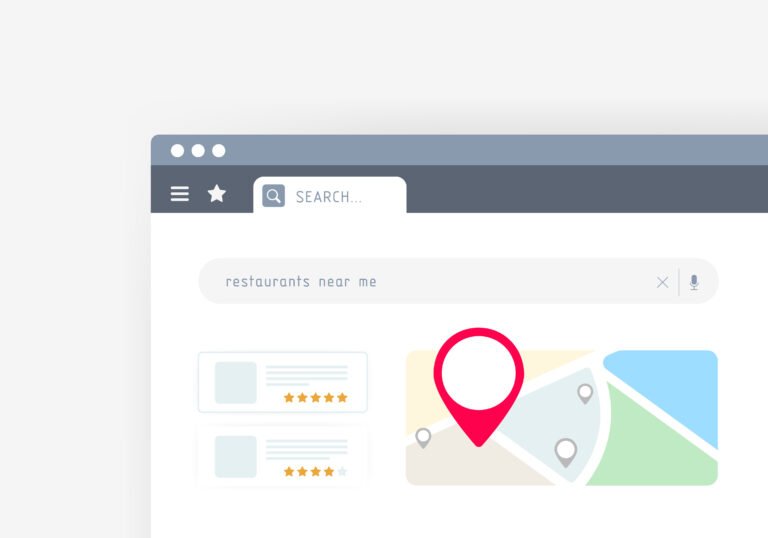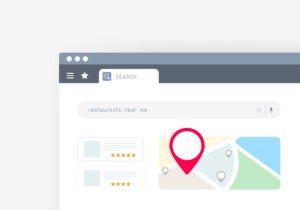These days, everyone seems to be searching for local products and services that are convenient and nearby. Whether it’s finding the best coffee shop, a reliable mechanic, or a trustworthy dentist, most of us turn to the internet to find local businesses. That’s where Local SEO (Search Engine Optimization) comes in. Suppose you’re a small business owner looking to attract more customers from your neighborhood. In that case, optimizing your online presence for local searches is essential. But what exactly is Local SEO, and how can you make it work for your business? Let’s break it down.
What is Local SEO?
Local SEO is all about getting your business noticed when folks nearby are looking for what you sell. Instead of the usual SEO targeting a broader audience, local SEO zeroes in on attracting customers to your neighborhood. When you nail it, Local SEO can bring more people into your shop, boost your online sales, and strengthen your ties with the local community.
Why is Local SEO Important?
Imagine you own a bakery in your town. If someone nearby searches for “best cupcakes near me,” you want your bakery to be the first thing they see in the search results. If you’re not showing up in these local searches, you’re missing out on potential customers who are ready to buy from you. Local SEO helps your business stand out to the folks who are most likely in the market for your product or service.
Tips to Optimize Your Local SEO
1. Claim and Optimize Your Google Business Profile
One of the most potent tools for Local SEO is your Google Business Profile (GBP). This handy, free tool helps you control your business’s appearance on Google Search and Maps. Here’s how to make the most of it:
- Claim Your Profile: If you haven’t already, claim your business on Google. This verifies that you are the owner and allows you to make updates.
- Complete Your Profile: Fill out all the information, including your business name, address, phone number, website, and business hours. The more information you provide, the better.
- Choose the Right Categories: Select categories that best describe your business. This helps search engines understand the products or services that your business provides and presents them to the appropriate audience.
- Add Photos: Upload high-quality photos of your storefront, products, and services. Visual content makes your profile more attractive and engaging.
- Encourage Reviews: Getting good reviews can really help improve your local ranking. So, why not ask your satisfied customers to drop a review on your Google profile?
2. Optimize Your Website for Local Keywords
Keywords are the words and phrases people type into search engines when looking for something online. To attract local customers, include local keywords in your website content. Here’s how:
- Include Location-Based Keywords: Use keywords that combine your services with your location. For example, if you’re a plumber in Chicago, you could use phrases like “Chicago plumber” or “plumbing services in Chicago.”
- Create Location-Specific Pages: If your business serves multiple locations, consider creating a separate page for each one. Each page should include unique content tailored to that location.
- Add Your Location to Your Meta Tags: Meta tags are short pieces of text that give a quick overview of what a page is all about. Don’t forget to add your location in your meta descriptions and title tags so that people know where you’re based!
3. Build Local Citations
Citations refer to instances where your business’s name, address, and phone number (often called NAP) appear on different websites. These citations help Google verify your business’s existence and location, which can boost your local SEO. Here’s how to build local citations:
- List Your Business in Online Directories: Share your business details on online platforms such as Yelp, Yellow Pages, and other local directories.
- Check for Inconsistencies: Ensure that your business information is consistent across all listings. Even small differences (like using “St.” instead of “Street”) can confuse search engines.
- Get Featured on Local Blogs and Websites: Reach out to local bloggers and news sites to feature your business. This can help you build authority and generate more local citations.
4. Use Social Media to Connect with Your Local Community
Social media is a great way to engage with your local community and boost your Local SEO. Here’s how to make the most of it:
- Share Local Content: Post about local events, news, and happenings in your area. This not only shows that you’re an active part of the community but also helps you connect with local customers.
- Use Location Tags: When posting on platforms like Instagram and Facebook, use location tags to show where your business is located. This can help people in your area discover your business.
- Engage with Your Audience: Respond to comments, messages, and reviews from your followers. Connecting with your audience demonstrates that you value your customers, and it’s a great way to foster trust.
5. Get Reviews from Local Customers
When it comes to Local SEO, reviews are super important. Good reviews can boost your online image and also give your business a better spot in local search results. Here’s how to encourage more reviews:
- Ask for Reviews: Once you’ve completed providing your customer with a service, kindly encourage your them to share their feedback through a review. You can do this in person, through email, or via social media.
- Make it Easy: Share a direct URL to your Google Business Profile or other review sites with your customers. The easier it is to leave a review, the more likely they are to do it.
- Respond to Reviews: Whether a review is good or bad, make sure to reply. Show appreciation for the nice feedback and handle any issues in the negative ones with professionalism.
6. Create Local Content
Making content that connects with folks in your area is a great way to enhance your Local SEO. Here are some ideas:
- Write Blog Posts About Local Events: Share your thoughts on local events, festivals, or news. This not only provides valuable information to your audience but also helps you rank for local keywords.
- Highlight Local Partnerships: If you collaborate with other local businesses, feature them in your content. This shows that you’re an active member of the local business community.
- Create “Best of” Lists: Create lists like “The Best Pizza Places in [Your City]” or “Top Things to Do in [Your Town].” These types of posts are popular and can attract a lot of local traffic.
Conclusion
Enhancing your online visibility for Local SEO is a great strategy to draw in more customers from your area. By taking ownership of and refining your Google Business Profile, incorporating local keywords, establishing citations, actively participating on social media, soliciting reviews, and producing localized content, you can improve your presence in local search results. Keep in mind that Local SEO is not a one-off endeavor; it requires continuous updates and focus. However, with persistent effort, you will notice an increase in local clientele visiting both your physical location and website. Local SEO is essential for distinguishing yourself within your community. Begin optimizing now and watch your business grow!











